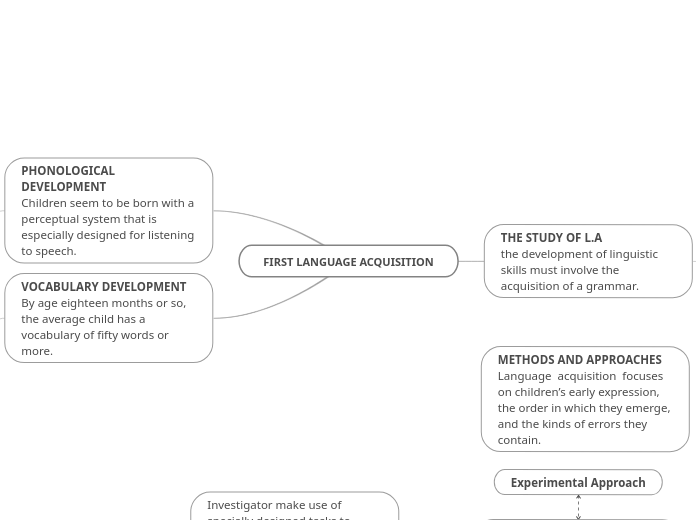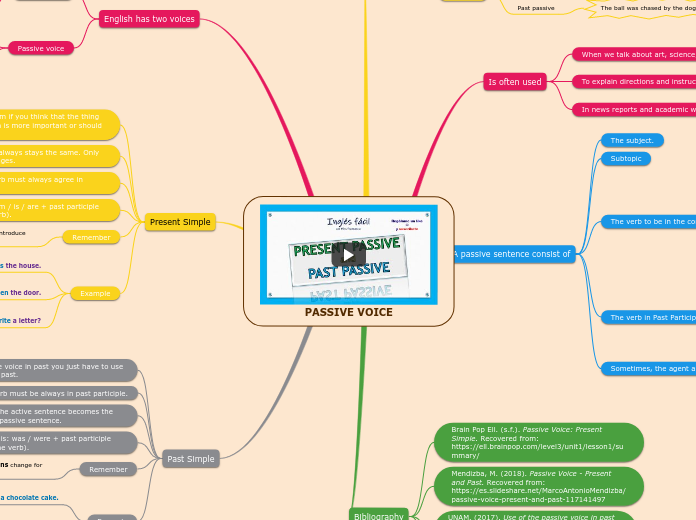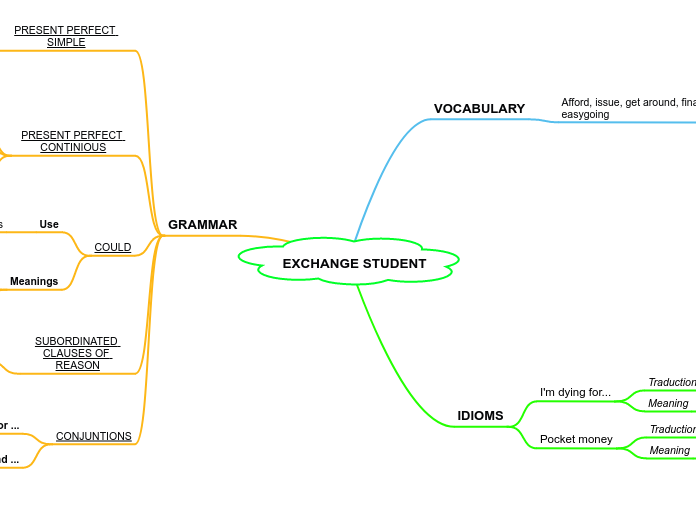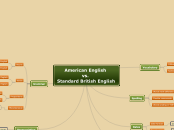by Juan Carlos CARRENO PARRA 3 years ago
161
FIRST LANGUAGE ACQUISITION- mindmap
Children's early language development involves experimenting with their vocal apparatus, a crucial step for future speech capabilities. Researchers employ various methods to study this process, including specially designed tasks that test comprehension, production, and imitation skills.









